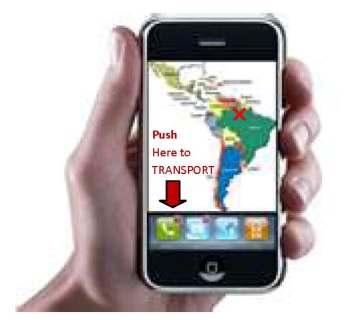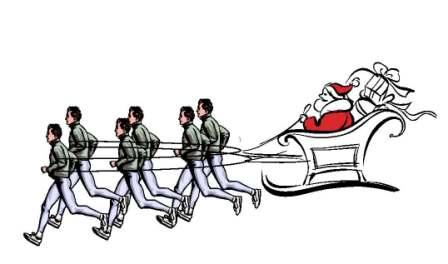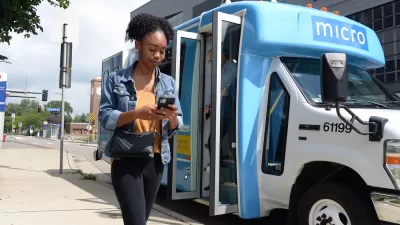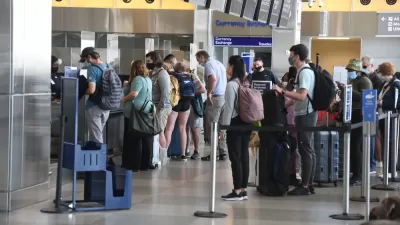A friend of mine who's a biophysicist popped in to see me the other day. He was all excited and showed me his “patent pending” letter for his newest invention.
A friend of mine who's a biophysicist popped in to see me the other day. He was all excited and showed me his "patent pending" letter for his newest invention. He was seeking help in deploying his new iPhone app. He had inquired about government grants, but was summarily dismissed as he explained his new transportation solution would eliminate thousands of transportation jobs. And the whole concept of shovel ready didn't make much sense to him as his project only required some software and a new low cost computer chip.
He said he explained to the bureaucrat that his iPhone app would revolutionize transportation and provide phenomenal increases in productivity and improvements to quality of life. No emissions, no GHG, no accidents, but no jobs either. It wouldn't stimulate development around stations because there would be no need for stations.
No jobs, - the bureaucrats weren't interested – therefore no money.
He couldn't understand the infatuation with jobs - everybody knows the most efficient and productivity enhancing transportation investments require less jobs, not more jobs. So why would evaluators be equating benefits with job creation?

I explained to my colleague that we are in a strange new world. The fundamental benefits of mobility have faded in significance as our metrics for evaluating transportation investments are more focused on responding to the political issue du jour. If he wanted any help in deploying a transportation solution he'd somehow need to create lots and lots of jobs.
He briefly pondered my advice and said he would be back with an alternative strategy. He had an idea that was snow shovel ready, would be very good for everyone's health and would create lots of jobs.

Merry Christmas and Happy Holidays.

Planetizen Federal Action Tracker
A weekly monitor of how Trump’s orders and actions are impacting planners and planning in America.

Map: Where Senate Republicans Want to Sell Your Public Lands
For public land advocates, the Senate Republicans’ proposal to sell millions of acres of public land in the West is “the biggest fight of their careers.”

Restaurant Patios Were a Pandemic Win — Why Were They so Hard to Keep?
Social distancing requirements and changes in travel patterns prompted cities to pilot new uses for street and sidewalk space. Then it got complicated.

Platform Pilsner: Vancouver Transit Agency Releases... a Beer?
TransLink will receive a portion of every sale of the four-pack.

Toronto Weighs Cheaper Transit, Parking Hikes for Major Events
Special event rates would take effect during large festivals, sports games and concerts to ‘discourage driving, manage congestion and free up space for transit.”

Berlin to Consider Car-Free Zone Larger Than Manhattan
The area bound by the 22-mile Ringbahn would still allow 12 uses of a private automobile per year per person, and several other exemptions.
Urban Design for Planners 1: Software Tools
This six-course series explores essential urban design concepts using open source software and equips planners with the tools they need to participate fully in the urban design process.
Planning for Universal Design
Learn the tools for implementing Universal Design in planning regulations.
Heyer Gruel & Associates PA
JM Goldson LLC
Custer County Colorado
City of Camden Redevelopment Agency
City of Astoria
Transportation Research & Education Center (TREC) at Portland State University
Camden Redevelopment Agency
City of Claremont
Municipality of Princeton (NJ)





























